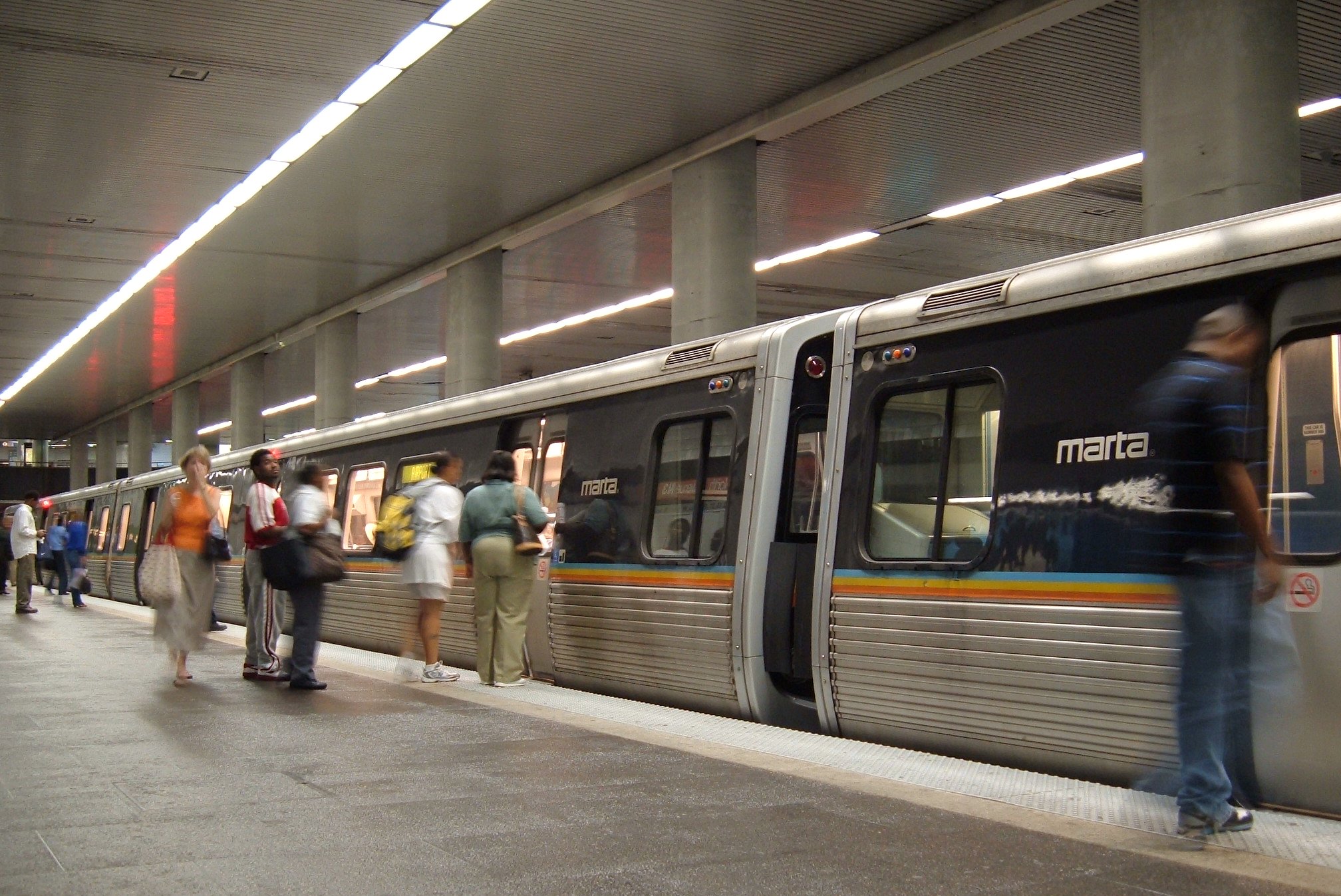
ATLANTA — On Monday, October 3, 2016, the Atlanta City Council unanimously passed a resolution authored by Councilmembers Andre Dickens and Kwanza Hall and co-sponsored by Councilmembers Joyce Sheperd, Ivory L. Young, Jr., Cleta Winslow, and Michael Julian Bond authorizing the City of Atlanta (“City”) to partner with MARTA and Atlanta BeltLine, Inc. to coordinate MARTA tax and TSPLOST transportation project lists and plans. The Resolution reaffirms the commitment of the City and MARTA to their respective programs for disadvantaged business enterprises, first source local hiring and affordable housing.
“The City’s residents expect and deserve an equitable phasing in and implementation of transportation projects within the City, fair and effective workforce development and contracting opportunities, and access to affordable housing,” said Dickens. “I am proud the City of Atlanta and MARTA have rich histories in providing economic opportunities to our disadvantaged businesses. We need to have development without displacing people and must look for better ways to get our citizens to work.”
“It is critically important that the City of Atlanta and MARTA continue to collaborate and coordinate throughout the planning and implementation of these projects. Our ability to secure federal funding will depend on the execution of the values we recommit ourselves to today: equity and affordability,” said Hall.
Georgia Senate Bill 369 (“Senate Bill 369”) authorizes the City of Atlanta (“City”) to hold a referendum to approve or reject an additional sales tax up to a half-penny (“MARTA tax”) for MARTA expansion. If approved, the half-penny MARTA tax would run concurrently with the penny MARTA tax already in place and currently set to expire in 2057, with projected new revenue of $2.5 billion to expand transit within the City limits. Senate Bill 369 also authorizes the City to hold a Transportation Special Purpose Local Option Sales Tax (“TSPLOST”) referendum to increase the sales tax by up to an additional half-penny for (non-transit) transportation projects. If approved at the maximum rate of 0.4 percent leveraged for five (5) years, the TSPLOST is projected to generate approximately $300 million from April 2017 to March 2022.
The MARTA tax and TSPLOST transportation projects will stimulate economic development and provide significant business opportunities in the City. The MARTA tax and TSPLOST transportation projects are expected to generate related Transit Oriented Development (“TOD”) for which development assistance such as tax incentives may be provided.
It is in the interest of the City, MARTA, and Atlanta Beltline, Inc. (“ABI”) to collaborate to improve competitiveness on the Social Equity Criteria used by the Federal Transit Administration (“FTA”) to score New Starts and Small Starts funding applications for transportation projects. The City has primary responsibility for Social Equity Criteria that includes existing Land Use and Economic Development that will result from future TOD. Existing Land Use is defined by the FTA as population densities within ½ mile of station areas, total employment served by the project, parking supply and cost in the Central Business District and share of legally binding affordability restricted housing in the corridor compared to share in the counties through which the project travels. Economic Development is defined as transit supportive plans and policies, demonstrated performance and impacts of the policies and plans and policies to maintain or increase affordable housing.
This Resolution resolves that:
- The City’s construction contracts for transportation projects are subject to the City’s First Source program, which requires that contractors use best efforts to fill entry level positions from a register of eligible jobseekers maintained by the Atlanta Workforce Development Agency, and the City reaffirms its commitment to this program for all TSPLOST transportation projects.
- The City’s construction contracts for transportation projects are subject to the City’s Disadvantaged Business Enterprise (“DBE”) requirements which are designed to promote meaningful opportunities for participation by historically disadvantaged minority and female owned businesses, and the City reaffirms its commitment to this program for all TSPLOST transportation projects.
- The City’s construction contracts for transportation projects are subject to the City’s Disadvantaged Business Enterprise (“DBE”) requirements which are designed to promote meaningful opportunities for participation by historically disadvantaged minority and female owned businesses, and the City reaffirms its commitment to this program for all TSPLOST transportation projects.
- All MARTA tax projects will be subject to MARTA’s policies and programs regarding workforce development and contracting opportunities which currently include a DBE Program with a goal of 30% DBE and TOD Guidelines provide for a goal of 20% of affordable rental units at 60%-80% of AMI.
- The City is committed to partnering with MARTA to coordinate MARTA tax and TSPLOST transportation project lists and plans so as to ensure a geographically equitable phase-in and implementation of the transportation projects across the City, to the fullest extent practicable.
